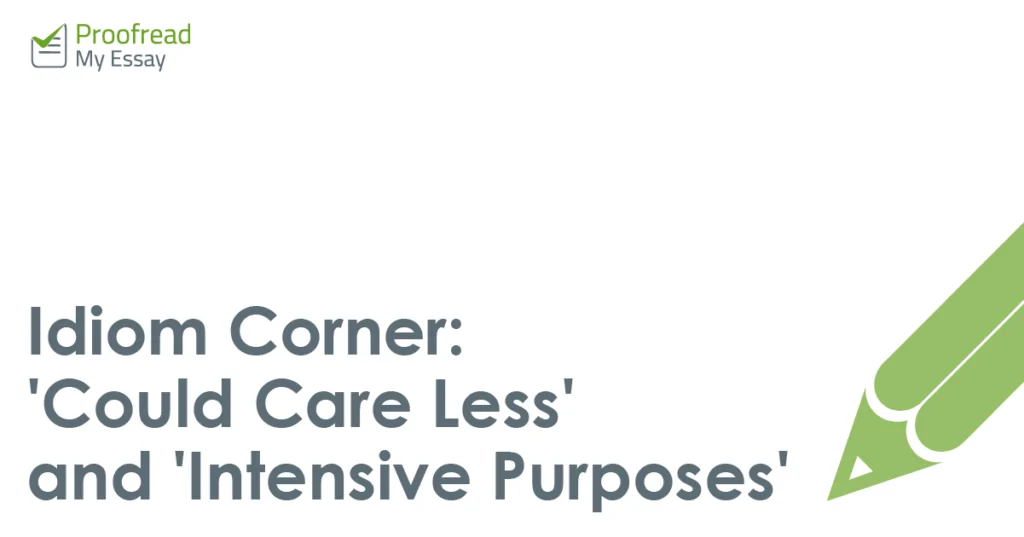It’s time to look at some commonly misused figures of speech. In particular, we’re going to look at the phrases ‘could care less’ and ‘intensive purposes’.
Both of these are incorrect versions of real idioms. But what are the correct phrases? And how should they be used if you want to avoid errors?
Could Care Less (aka Couldn’t Care Less)
People often say they ‘could care less’ about something to express disdain or a lack of interest. For example, you might hear someone say:
I could care less about grammar, so don’t bother correcting me.
But taken literally, ‘could care less’ implies that you care about it. After all, you must care about something at least a little bit if you could care about it less. The correct phrase is ‘couldn’t care less’, which is the exact opposite.
‘Couldn’t care less’ also makes more sense, as this implies that you don’t care about it (i.e. that it would be impossible for you to care less).
Find this useful?
Subscribe to our newsletter and get writing tips from our editors straight to your inbox.
The phrase ‘could care less’ is quite common now. And while most people will understand what you mean if you write this, it doesn’t make a lot of sense. So if you don’t care about something at all, you couldn’t care less about it.
Intensive Purposes (aka For All Intents and Purposes)
‘Intensive purposes’ and ‘intents and purposes’ sound similar, so it’s no surprise people mix them up. The trouble is they also differ completely in meaning. The phrase ‘for all intents and purposes’ means ‘for all practical purposes’ or ‘in effect’. So we might say something like:
For all intents and purposes, I’ve stopped caring about grammar.
This would mean that we’ve given up hoping that people will use grammar correctly. But ‘intensive’ means that something is ‘intense’ or ‘highly concentrated’. So an ‘intensive purpose’ would be a specific type of purpose (possibly one that involves a lot of shouting).

‘For all intensive purposes’ therefore has a very different meaning to the original phrase. To avoid confusion, you should always write ‘intents and purposes’. Unless you genuinely do have an intensive purpose, of course. We’re just not sure what that would be.



